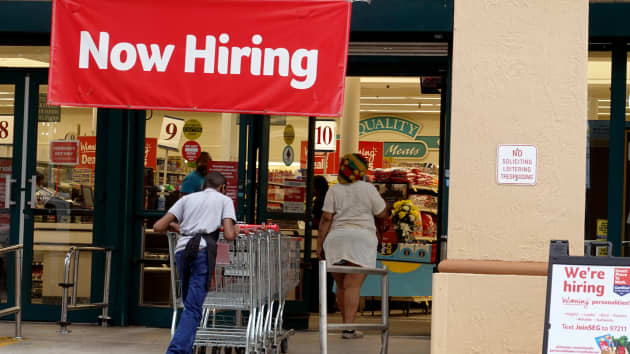
|
|

|
|
| April 26, 2024 |
|
What follows the Great Resignation? Reasons why many aren’t returning to work 
On the surface, conditions may seem ripe for a boom in the U.S. labor market.
There are still 5 million fewer jobs than before the pandemic but job openings are near record highs. And hourly pay has risen, in some sectors by more than 10% in a year. Meanwhile, enhanced federal unemployment benefits ended on Labor Day (or sooner) and kids are largely back in the classroom. Both enhanced jobless pay and distance learning, it was thought, had been roadblocks keeping people from returning to work. However, that boom hasn’t materialized in recent months — at least, not at the rate many expected. “If you had ever told me we’d have millions of workers still on the sidelines and have wages going up because people couldn’t find workers, you could knock me over with a feather,” said Diane Swonk, chief economist at accounting and advisory firm Grant Thornton. Early evidence suggests enhanced jobless benefits played at most a small role in keeping people from work. So, why aren’t people rushing back to take jobs? There are many reasons and complex nuances, according to economists. Here are some of the main drivers. KEY POINTS • Millions of lost positions have yet to return to the job market but there are near-record job openings and job growth has been slower than expected in recent months. • Enhanced unemployment benefits ended nationwide on Labor Day, and even sooner in many states. So far, evidence suggests benefits didn’t play a big role in sidelining workers. • Other factors are at play, according to economists. They include Covid health risks, early retirements, care duties, built-up savings and other frictions. Story Date: January 10, 2022
|